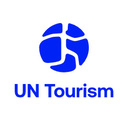UN Tourism and TUI Care Foundation partner to support African artisans in rural areas

UN Tourism and TUI Care Foundation have solidified their ongoing partnership by signing an agreement at the UN Tourism headquarters in Madrid. The agreement focuses on empowering artists and artisans, particularly women and youth, in rural tourism destinations in Africa. With this new agreement, TUI Care Foundation becomes the first partner to support the pilot phase of the Tourism for Rural Development Small Grants Programme by UN Tourism.
Empowering Rural Artists and Artisans
With this collaboration, UN Tourism and TUI Care Foundation will launch ‘Colourful Cultures’ Call for Proposals to empower artists and artisans in rural destinations in Gambia, Morocco, Mozambique, Namibia, Rwanda, Senegal, South Africa, Tanzania, Tunisia, Zambia.
The call will allow non-profit organisations in these countries to develop innovative initiatives that benefit artisanal and artist communities to boost income opportunities, protect intangible cultural heritage, and promote rural tourism.
UN Tourism and TUI Care Foundation have been collaborating to promote sustainable development through tourism. In 2023, both organisations launched the Tourism for Development Fund with EUR 10 million to support sustainable development in destinations in Least Developed Countries (LDCs).
Empowering Rural Communities Through Tourism
Speaking at the signing ceremony of the agreement, Zurab Pololikashvili, Secretary-General of UN Tourism said: Tourism has the power to transform lives and communities, especially in rural areas. By supporting artists and artisans, we are not only preserving cultural heritage but also creating sustainable income opportunities. This collaboration with TUI Care Foundation exemplifies our commitment to inclusive and sustainable tourism for rural development.
Thomas Ellerbeck, Chairman of the TUI Care Foundation, echoed this sentiment, stating, By supporting artists and artisans, we are preserving cultural heritage and promoting economic growth and social well-being in some of the world's most vulnerable tourism destinations. This change-making collaboration with UN Tourism, inspired by our global TUI Colourful Cultures programme, is an important cornerstone of our Foundation's strategy.
Driving Sustainable Tourism Development in rural communities in Africa
Tourism serves as a lifeline for many rural communities and has a unique capacity to create new job opportunities, promote territorial cohesion, and protect natural and cultural resources. It also empowers women and youth.
Rural areas face increasing challenges, such as depopulation, aging populations, lower income levels, and gaps in infrastructure, health, and financial services. Despite significant improvements in recent decades, disparities between urban and rural areas persist. This call for proposals aims to:
- Increase the capacity of artists and artisans to engage in the tourism economy and enhance their income
- Increase the visibility of artists and artisans in rural tourism destinations
- Increase the availability of support services for artists and artisans in rural tourism
The call is expected to open for applications in September.
Contact: [email protected]
Related Links:
About UN Tourism
The World Tourism Organization (UN Tourism) is the United Nations agency responsible for the promotion of responsible, sustainable and universally accessible tourism.
As the leading international organization in the field of tourism, UN Tourism promotes tourism as a driver of economic growth, inclusive development and environmental sustainability and offers leadership and support to the sector in advancing knowledge and tourism policies worldwide.
Our Priorities
Mainstreaming tourism in the global agenda: Advocating the value of tourism as a driver of socio-economic growth and development, its inclusion as a priority in national and international policies and the need to create a level playing field for the sector to develop and prosper.
Promoting sustainable tourism development: Supporting sustainable tourism policies and practices: policies which make optimal use of environmental resources, respect the socio-cultural authenticity of host communities and provide socio-economic benefits for all.
Fostering knowledge, education and capacity building: Supporting countries to assess and address their needs in education and training, as well as providing networks for knowledge creation and exchange.
Improving tourism competitiveness: Improving UN Tourism Members' competitiveness through knowledge creation and exchange, human resources development and the promotion of excellence in areas such as policy planning, statistics and market trends, sustainable tourism development, marketing and promotion, product development and risk and crisis management.
Advancing tourism's contribution to poverty reduction and development: Maximizing the contribution of tourism to poverty reduction and achieving the SDGs by making tourism work as a tool for development and promoting the inclusion of tourism in the development agenda.
Building partnerships: Engaging with the private sector, regional and local tourism organizations, academia and research institutions, civil society and the UN system to build a more sustainable, responsible and competitive tourism sector.
Our Structure
Members: An intergovernmental organization, UN Tourism has 160 Member States, 6 Associate Members, 2 Observers and over 500 Affiliate Members.
Organs: The General Assembly is the supreme organ of the Organization. The Executive Council take all measures, in consultation with the Secretary-General, for the implementation of the decisions and recommendations of the General Assembly and reports to the Assembly.
Secretariat: UN Tourism headquarters are based in Madrid, Spain. The Secretariat is led by the Secretary-General and organized into departments covering issues such as sustainability, education, tourism trends and marketing, sustainable development, statistics and the Tourism Satellite Account (TSA), destination management, ethics and risk and crisis management. The Technical Cooperation and Silk Road Department carries out development projects in over 100 countries worldwide, while the Regional Departments for Africa, the Americas, Asia and the Pacific, Europe and the Middle East serve as the link between UN Tourism and its 160 Member States. The Affiliate Members Department represents UN Tourism's 500 plus Affiliate members.
UN Tourism Communications Department
+34 91 567 8100
UN Tourism
